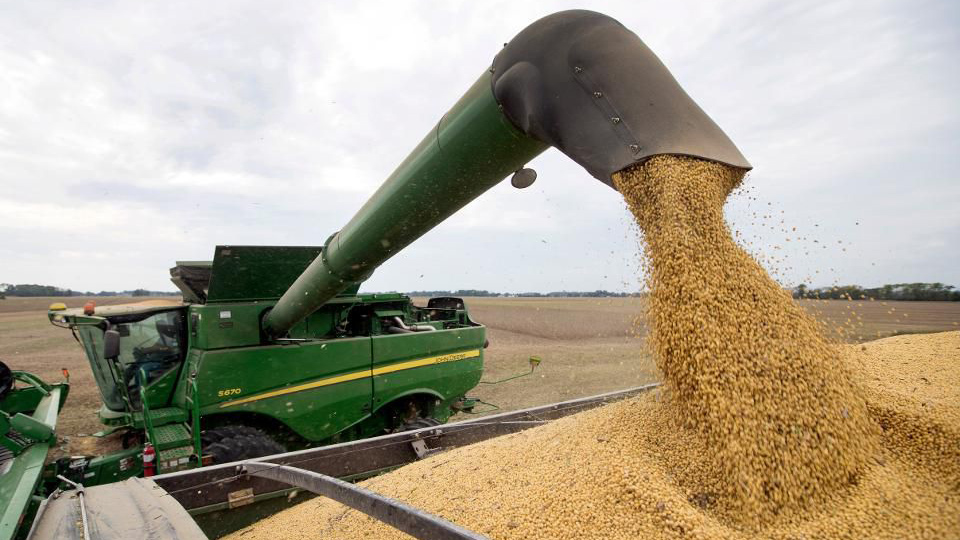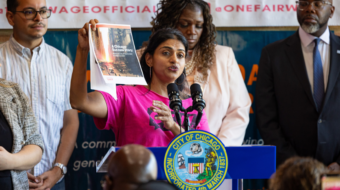
For one farmer, this day should have been a day of hope and an end to what has felt like endless uncertainty. Instead, thanks to the government shutdown, it’s another day of waiting and hoping to keep the family farm alive. Farm Aid, a nonprofit organization whose mission is to keep family farmers on the land, reports that their farm advocate, Joe, has been working with this farmer, preparing for a scheduled appeals hearing that never took place. The hearing would have determined whether the Farm Service Agency (FSA) had incorrectly denied his claim for reimbursement of a loss under a farm safety net program. Ultimately, it would have determined whether he could hold onto his farm.
A pre-hearing in December indicated that the ruling on this appeal would likely be in the farmer’s favor, allowing him to receive reimbursement for his loss. Right now, he doesn’t know when or even if the hearing will be rescheduled—there’s no one picking up the phone at the U.S. Department of Agriculture (USDA) to ask what happens next—and if it will be in time for him to save the farm.
This is just one story of one farmer impacted by the government shutdown. In 2019, the Farm Aid hotline has been receiving more than double their typical number of calls and nearly every call is from a farmer who’s being hurt by the shutdown. The agency established to be there for farmers when traditional banks won’t help is now powerless to show their utility. Regardless of the troubling FSA servicing failures that Farm Aid often encounters on hotline calls, the agency and regulations they are bound by are the best tools a farm advocate has to ensure fairness and access to all.
Here are a few more stories Farm Aid has heard from farmers in the past couple weeks:
- Many calls have come from grain farmers, who are dependent on annual operating loans. They spend the critical time during January and February seeking their new lifeline of credit. A large percentage of the Midwestern grain farmers need well over the FSA operating loan limit of $600,000, so the problem isn’t that they can’t access an FSA loan. The problem is that the commercial banks they obtain their loans from rely on USDA guarantees, a promise by the USDA to assume the debt obligation of a borrower if that borrower defaults. The banks can’t get those guarantees with the USDA shuttered, leading farmers to wonder when, and even if, their loans will finally come through. The question on their minds: Will it be in time to get their crop in the ground this year?
- Farm Aid is also hearing from many farmers who rely on FSA loans who have been denied after years and years of getting the same annual operating loan. A denial on an operating loan has the potential to shut a farm down almost immediately, and right now farmers can’t appeal those denials with the USDA shut down. As the “lender of last resort,” farmers who have been denied by FSA have literally nowhere else to turn.
- A farm that has been in the family for more than 200 years is at risk of foreclosure. Typically, a solution to this challenge would involve the next generation of farmers applying for USDA loans to purchase the farm, and in this case, there are two sons interested in investing and taking on the future of the farm. However, with the USDA’s doors closed, loan applications cannot be made, and it’s possible the private bank will foreclose on the farm in the meantime.
- With climate change, we’ve seen a dramatic increase in localized, intense weather events. Who does the farmer rely upon for disaster assistance in those cases? The USDA. But today there’s nowhere to go for farmers who’ve lost livestock, had acres of crops ruined, or emerged from shelter to find buildings and barns destroyed.
Folks think of farms as being most active in the spring, summer, and fall because that’s when most U.S. farmers are out in the fields. But the truth is that winter is equally–if not more–important because winter is when farmers sell their crops, pay their bills, acquire the next year’s operating loans, and prepare for the upcoming season. Winter is not time off for farmers; winter is business time. For the USDA to be shut down during this critical time is incredibly stressful for the farmers.
Farmers here in the U.S. have suffered from years of decreasing prices, increasing costs, natural disasters, healthcare costs and more. This year, they’ve dealt with the added burden of economic insecurity from the trade war and now a shutdown of the only programs designed to help farmers get back on their feet.
Farm Aid advocates have tools in their toolbox to help farm families make the best use of the USDA programs that sustain them, but the shutdown has emptied the toolbox and rendered them unable to provide tangible solutions to the farmers on the phone. They refer farmers to the Farm Service Agency, Natural Resources Conservation Service, FEMA, and other federal agencies almost every time the phone rings. It’s incredibly painful to tell a farmer that there’s currently nothing that anyone can do to help. It’s time to end the government shutdown, for farmers and most everyone in the country.
See the Farm Aid Blog here.










